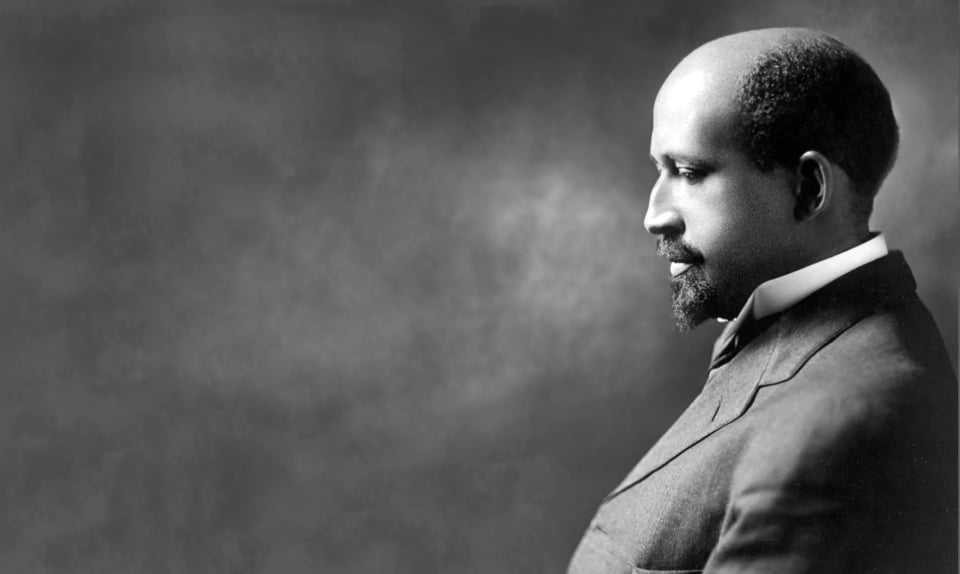A Study in the Writing and Acting of Whiteness
A Du Bois-influenced reading of To the Finland Station


Edmund Wilson’s book To the Finland Station is subtitled “A Study in the Writing and Acting of History,” and it’s a good one for his book. You could call it a history of a century of socialism (roughly 1817-1917), but Wilson is interested in intellectual revolution as much as (or really more than) political revolution. He writes at greater length about post-Revolutionary historians like Michelet and Renan than about what he sees as the minor political figures that prefigured Lenin. And his Marx and Engels are above all writers, theorists, and psychological curiosities who somewhat accidentally happened to have been involved for a brief time in political organizing. He wants to better understand the history of people who sought to better understand history, and write about them in ways they never would or could have written about themselves.
As an American writing mostly about 19th century Europeans in the 1930s, Wilson necessarily has some blind spots. Anti-semitism is not particularly one of them, although he does exhibit a philo-semitism that sometimes turns cartoonishly on its head. He is pretty thoroughly obsessed with national, religious, and ethnic origins for all of his characters: Lenin’s German mother gets credited with everything about her son that seems to disprove Russian stereotypes. But Marx’s Jewishness is turned over the most thoroughly and quasi-psychoanalytically (with an attention to physical detail that borders on the phrenological).
At multiple points, Wilson argues that Marx’s theory of history depends on its author’s identification of the proletariat with the Jewish people. Early on, this is seen to be a strength of Marx’s: his Jewishness prevents him from easily identifying with the European bourgeois intelligentsia; his rabbinical heritage supplies him with a moral and political imagination and vocabulary; like Freud, Einstein, and Proust, he is capable of identifying with society’s subaltern elements.
But in his final assessment of Marx’s theory, Wilson sees identifying the proletariat with the Jew (a hypothesis Marx himself never advances) as Marx’s fatal intellectual mistake. Unlike the Jews, Wilson argues, the proletariat cannot merge seamlessly into the center of political life post-emancipation. The working class has no autonomous intellectual tradition to muster for itself, and must necessarily depend on independent intellectuals (read: Jews) to articulate and manage their politics.
Here, Wilson somehow manages to underestimate the power of European anti-Semitism by assuming that the success of a handful of accomplished representative Jews meant the transition from the ghetto to academia was seamless and without incident. He also seriously underestimates working-class intellectuals and intellectual life. To make both of these mistakes in a book published in 1940 is rather astonishing, but it speaks to the well-appointed, WASP-y, Princeton-legacy point of view that Wilson never bothers to try to shake off.
Wilson also argues that Marx and Engels misunderstand America, by which he means the United States of America. In America, Wilson posits, the absence of a feudal legacy makes for a remarkable democracy of association. Yes, money factors into it, but there is nothing like the ossification of class status you find in Europe or Russia. Consequently, class tensions are never brought to a boiling point, because, Wilson says, the conflict is actually (largely peaceably) fought out every day, among men who are largely political equals.
This is a common portrait of the United States, but it’s an absurd one. It ignores the intersections of race, class, and gender that should have been obvious to any American writing in the 1930s. Wilson, who is consistently obsessed with the determining power of race and ethnicity on the European continent, completely casts it aside when dealing with the American one.
Wilson is also well aware that the history of socialism is in part, the history of a strand of feminism, but he underplays that too. It does not fit with his self-perception of a fundamentally democratic America — Whitman without a hint of the push and pull of sex, race, and genuinely democratic tension.

Nobody needed to read W.E.B. Du Bois’s Black Reconstruction (1935) more than Edmund Wilson while writing To the Finland Station. It would have given him a better understanding of Marx and of the complex history of the racialized proletariat in the United States.
While I’ve dwelled on his flaws, I will freely admit Wilson is a very fine writer. But Du Bois’s writing, too, has everything Wilson’s lacks: a consistency of energy, a sociological thoroughness, and a resolute self-questioning that connects with the reader and propels the narrative forward.
Everything Wilson finds and admires in Michelet and in Marx, he could admire in Du Bois. The fact that he never finds it — not even in Patriotic Gore, his history of the U.S. Civil War, published in 1962, the year before Du Bois’s death — is one of the uncountable mysteries of twentieth-century whiteness.
You just read issue #1 of Backlight. You can also browse the full archives of this newsletter.